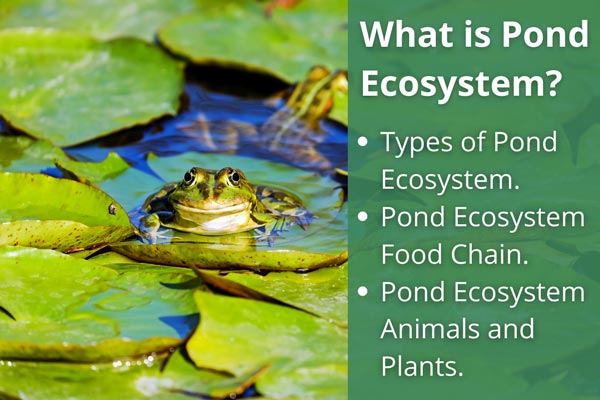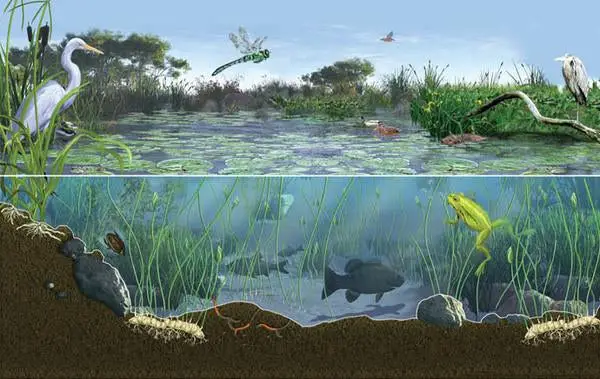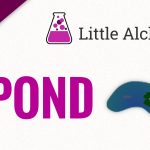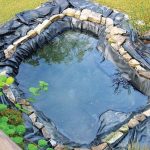Yes, a pond is indeed an ecosystem. But what exactly is an ecosystem? An ecosystem is a community of living organisms, together with the non-living components of their environment, interacting as a system. In the case of a pond, it is a self-contained community of organisms interacting with each other and with their physical environment.
Components of a Pond Ecosystem
A pond ecosystem consists of both living and non-living components that work together to create a balanced environment. Let’s break down the components:
Living Organisms
1. Plants: Plants play a crucial role in a pond ecosystem. They provide oxygen through photosynthesis and serve as food sources for many animals such as insects and fish.
2. Animals: Various animals inhabit a pond ecosystem, including fish, amphibians, insects, and birds. These animals interact with each other, forming a complex web of relationships.
Non-living Components
1. Water: Water is the primary component of a pond ecosystem. It serves as a habitat for aquatic organisms and facilitates nutrient cycling within the ecosystem.
2. Soil and Sediment: The bottom of the pond is home to soil and sediment, which house a diverse community of microorganisms that play a vital role in nutrient recycling.
3. Light: Sunlight is essential for photosynthesis in plants, which forms the basis of the food chain in the pond ecosystem.
Interactions in a Pond Ecosystem
The interactions within a pond ecosystem are complex and interconnected. Here are some key interactions that take place:
- Plants produce oxygen through photosynthesis, which is essential for the survival of aquatic animals.
- Animals feed on plants and other animals, contributing to the transfer of energy within the ecosystem.
- Microorganisms break down organic matter, recycling nutrients back into the ecosystem.
- Predator-prey relationships help maintain the balance of species populations within the ecosystem.
Benefits of a Pond Ecosystem
1. Biodiversity: Ponds support a wide variety of plant and animal species, contributing to overall biodiversity in the ecosystem.
2. Water Filtration: Ponds can act as natural filters, removing pollutants and excess nutrients from the water, improving water quality.
3. Recreation: Ponds provide recreational opportunities such as fishing, boating, and wildlife observation, promoting a connection to nature.
4. Educational Value: Studying pond ecosystems can help us understand ecological concepts and the importance of conservation.
Challenges Facing Pond Ecosystems
Despite their importance, pond ecosystems face various threats that can disrupt their delicate balance:
- Pollution from runoff and chemicals can degrade water quality and harm aquatic life.
- Invasive species can outcompete native species, disrupting the natural ecosystem dynamics.
- Habitat destruction due to urbanization and land development can lead to the loss of ponds and their ecosystems.
- Climate change can alter water temperatures and precipitation patterns, affecting the health of pond ecosystems.

Credit: premierpond.com

Credit: www.earthreminder.com
Conclusion
In conclusion, a pond is not just a body of water; it is a complex ecosystem teeming with life and interactions. By understanding and appreciating the intricacies of pond ecosystems, we can work towards protecting and conserving these valuable habitats for future generations.




